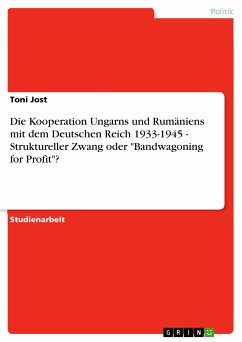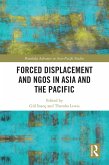Seminar paper from the year 2009 in the subject Politics - Topic: Globalization, Political Economics, grade: 1,3, Maastricht University, course: Migration: People on the Move, language: English, abstract: Since coming into power in 1933, the national socialists in Germany pursued their oppressing, discriminating and racist policies even in the fields of science. They tried to control all aspects of life, including culture, science and education. Many decrees and orders pushed disliked and "non-Aryan" economists, scientists and scholars out of their sphere of activity and replaced them with followers of their regime. Overall about half a million people migrated from the NS-regime. 12,000 of them were part of the former German intellectual elite. Among them were about 1,700 academic scholars, which will be the focus of this paper. Not everyone could escape easily, because the immigration policies of the receiving countries were not only driven by humanity and often strict. Besides the ideal of "free science", most countries were anxious to submit suitable applicants including persons whose work in the world of science, of the arts or business and industry may be advantageous to their country. Also they had to consider the politics of internal and foreign affairs. However, a lot of scientists were supported by special organizations which were designed to help high skilled workers with their emigration. But still it was not easy for them to integrate in the new countries. In their receiving countries the former German elite has made enormous progress in research and even made an impact on post-war Germany. The common view is that the receiving countries gained while Germany lost due to this brain drain. The paper discusses the question whether this view is appropriate and points out that it is problematic to handle with these simple terms. Beyond that, it claims that one cannot speak of a emigration-induced scientific change without considering many prerequisites.
Dieser Download kann aus rechtlichen Gründen nur mit Rechnungsadresse in A, B, BG, CY, CZ, D, DK, EW, E, FIN, F, GR, HR, H, IRL, I, LT, L, LR, M, NL, PL, P, R, S, SLO, SK ausgeliefert werden.
Hinweis: Dieser Artikel kann nur an eine deutsche Lieferadresse ausgeliefert werden.









